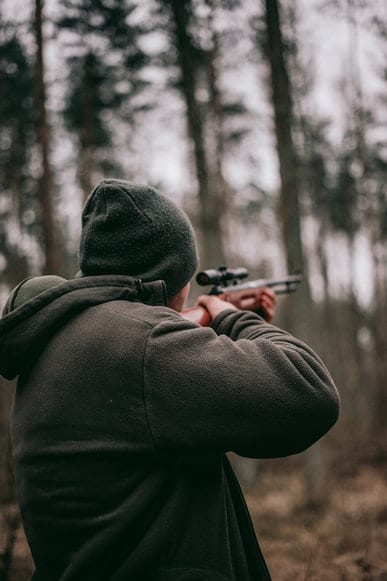Shooting and hunting are popular hobbies amongst Oregonians. While a nice excuse to spend time with friends and family in nature, this pastime can be putting your ears at risk of irreversible damage. In this post, we review how you can protect yourself.
What Sounds Are Too Loud?
Sounds are measured in decibels (dB). Anything louder than 85 dB can cause damage to the delicate hair cells within the inner ear. These hair cells are responsible for converting sound vibrations into electrical impulses, which are passed through the auditory nerve to the brain to be interpreted as sound.
Below is a list put together by the Centers for Disease Control and Prevention of the decibel rating of some common sources of noise:
- Normal conversation: 60 dB
- City traffic: 80 dB
- Motorcycle: 95 dB
- Live show at McMenamins Crystal Ballroom: 110 dB
- Standing near police sirens: 120 dB
- Firecrackers: 140 dB
Most firearms produce noise that is louder than 140 dB, with rifles and pistols emitting sounds louder than 175 dB. Sounds that are this loud can cause permanent and immediate hearing loss.
How to Shoot a Gun Safely
With proper precautions, you can continue to hunt and shoot without worrying about lasting hearing loss.
Wear Hearing Protection
The number one tip for preventing noise-induced hearing loss is to wear hearing protection designed specifically for hunting and shooting. These earplugs can block out the loud gunshots while still allowing softer sounds to reach ears. This helps you stay safe while out at Mt. Hood National Forest, as you can remain aware of your surroundings.
Use a Silencer
Attaching a silencer to the end of your gun helps dampen the gunshot by stabilizing the propellant gases produced by the gun when fired. While helpful for protecting your ears, this attachment is not legal in all states. Make sure to do your research before heading out on your next hunting trip.
Take a Listening Break
Extended exposure to loud noises, even when you are wearing the proper hearing protection, can cause damage to your ears. Experts suggest taking a listening break between rounds to give your ears a rest.
To learn more about protecting your hearing or to schedule an appointment with a hearing protection expert, contact Mt. Hood ENT & Allergy today.
